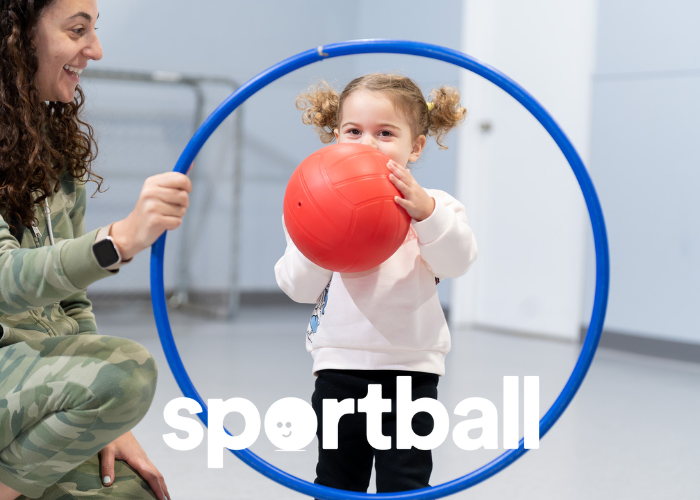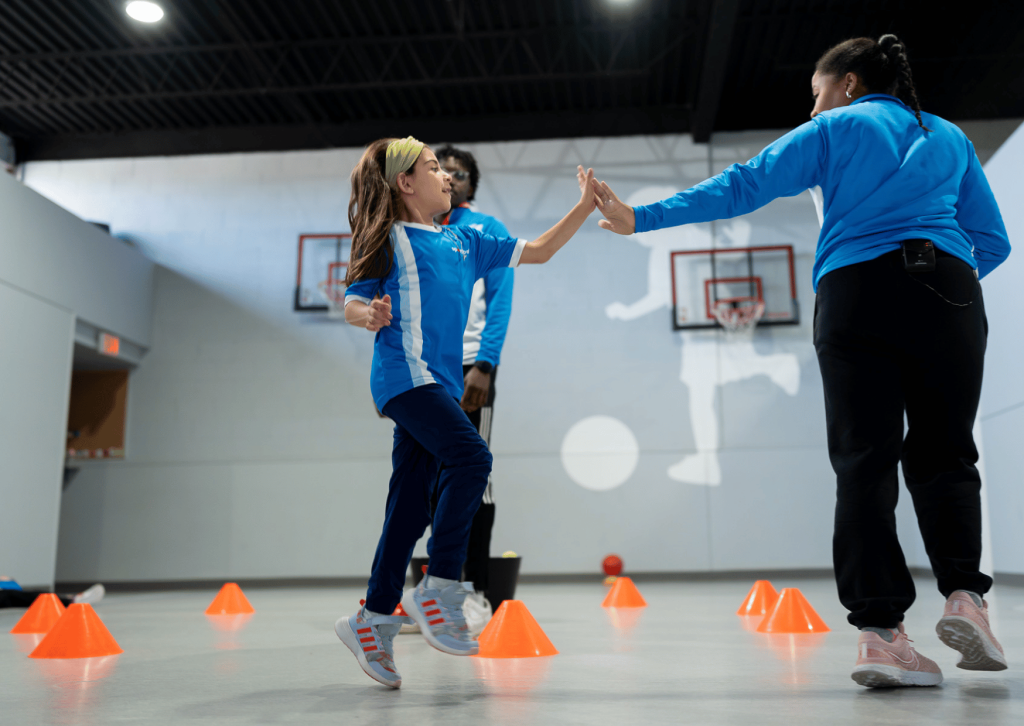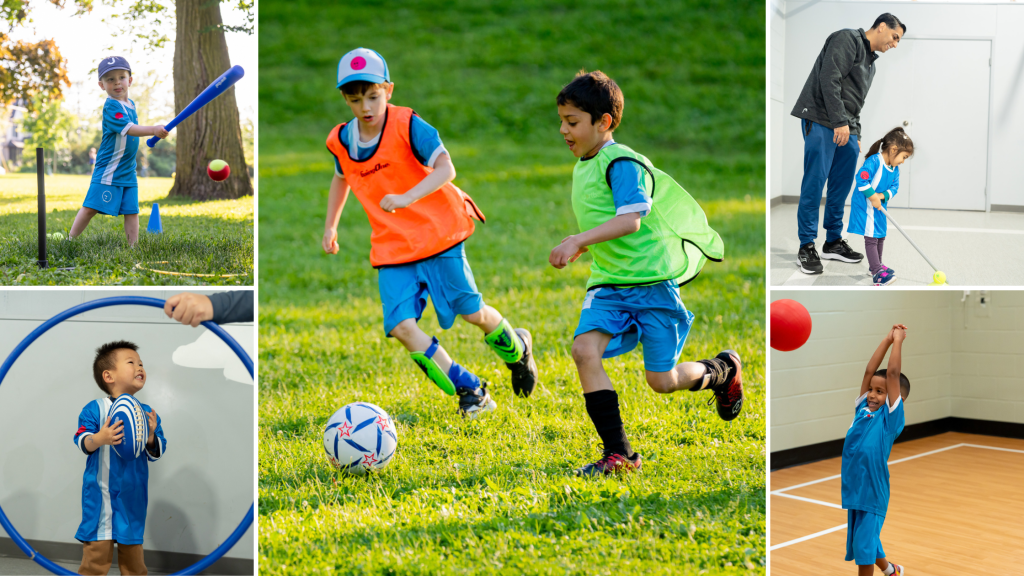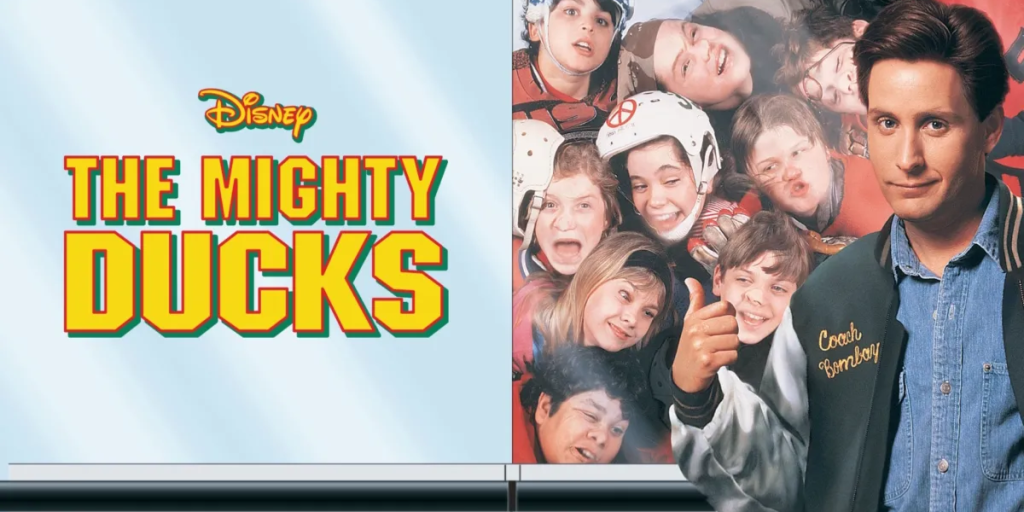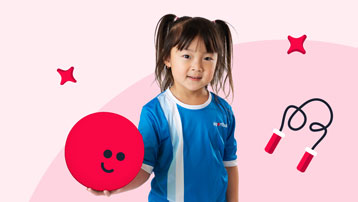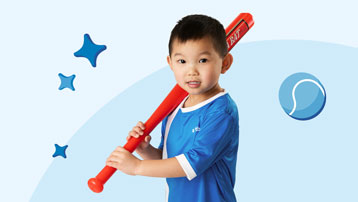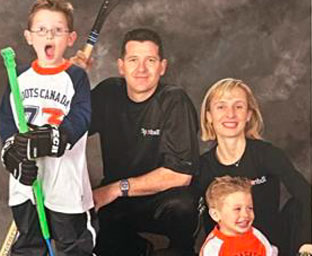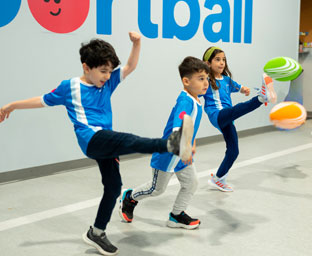One of the most challenging aspects of children’s sport participation is navigating the complexities of winning and losing, or – experiencing success versus failure. When met with this distinction for the first time, children measure their performance against a fellow athlete or peer, and appraise their success or failure – often while trying a new sport or physical activity. This lesson is not an easy one, and it is not uncommon for children to become preoccupied with ‘being last’ in a given sport or activity, deterring their enjoyment, or sometimes desire to continue playing altogether. In fact, one of the leading causes of drop-out from children’s sport is low perceived competence1 or not feeling ‘good enough’, which children determine through comparing their abilities to others.
At Sportball, instead of sheltering children from failure, we help children navigate it in a safe and supportive environment. Success and failure are taught at Sportball through a combination of modified games, and careful coach demonstration and modelling, and may also be reinforced at home by parents (described below), or drawn-upon in other life domains. This idea is rooted in the overall approach of using sport as a vehicle to teach children important life and social-skills, which they can use in the school-yard, in the classroom, or with siblings and peers2 .
What We Do As Coaches
While Sportball strives to create a non-competitive sporting environment, even our youngest Sportball attendees are introduced to small in-class challenges, which deliberately introduce children to both success and failure. For instance, children participate in races against their fellow classmates and coaches, which coaches may elect to win or lose in any given class/warm-up. After each race, coaches demonstrate and model how to appropriately react to, or perceive both scenarios. For example, coaches may lose a race, yet congratulate the class, and exclaim: “It looks like you were all faster than me this week, but that’s okay- because I tried my best!” Alternatively, coaches may win, but assure children who are disappointed: “I may have won this time, but – there is always next week to try again!” As children progress through Sportball classes, they begin participating in more organized games, yet – they do so with a number of modifications. For instance, when playing basketball, coaches may restrict players from intercepting passes between opponents – ensuring that children of varied ability levels get an equal opportunity with the ball. While there are still opportunities for experiencing success and failure within these modified games (i.e., through scoring baskets), we attempt to reduce the divide between children who may be more advanced, and those who are newer to a sport.
What Can You Do As A Parent?
Parents can extend the lessons about success and failure that children adopt at Sportball and reinforce them during the car-ride home. For instance, parents should be conscious of the language children use to describe their experiences in class, such as disappointment they may express towards underperforming, or any preoccupation they may have about being ‘the best.’ In either scenario, parents should focus on praising children’s efforts over results – communicating that who won or lost a given game or activity is secondary to trying one’s best, and having fun. These lessons should be echoed during any unstructured sport or activity that takes place at home, at school, and between peers and siblings. Parents may also find it helpful to watch professional sporting events as a family, and draw parallels between children’s sport experiences and those of professional athletes/ teams- highlighting that even talented athletes experience wins and losses, and have both good and bad days.
Overall, we are conscious of the unique opportunity we have at Sportball to deliberately expose children to both success and failure. Through this, our goal is to help children form an adaptive (versus maladaptive) relationship with failure, altogether helping children become more resilient, and better prepared for the classroom, and for life.
Want to learn more?
- Crane, J., & Temple, V. (2015). A systematic review of dropout from organized sport among children and youth. European Physical Education Review, 21(1), 114-131.
- Pierce, S., Gould, D., & Camiré, M. (2017). Definition and model of life skills transfer. International Review of Sport and Exercise Psychology, 10(1), 186-211.
